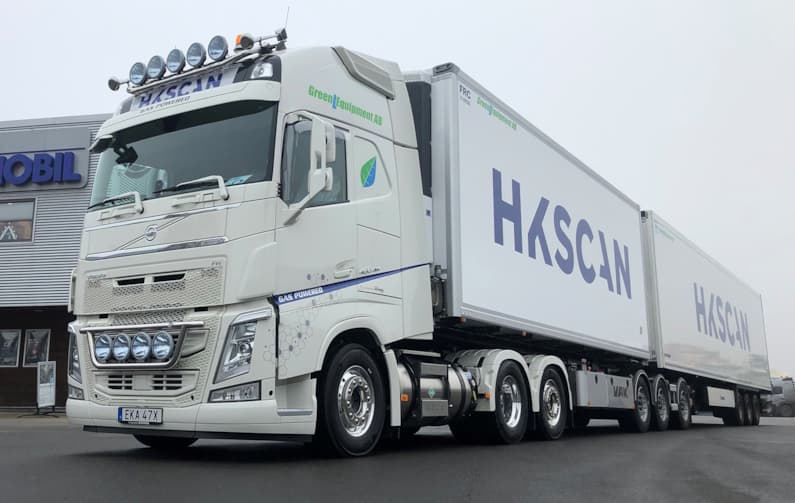We are on the journey towards carbon-neutral food chain by the end of 2040. The new biogas truck in Sweden has 90% smaller CO2e emissions.
The new biogas truck rolls on a round trip between Kristianstad and Halmstad. The new truck drove the route for the first time in December 2020 and is intended to operate the Kristianstad - Halmstad - Kristianstad loop daily. The expected distance is 100,000 km / year.
This is part of the ambition that our transports will be fossil-free in Sweden by 2025. Previously, the transports went by diesel-powered trucks.
By powering delivery trucks with renewable methane (biogas), our CO2e emissions will be reduced by about 90%. In a few years, when there is a large-scale collection of manure the CO2e reduction will be even more.
Our partner in this project is the gas producer Gasum, which produces biogas in large-scale facilities with a strategic location in the middle of waste-dense regions. The supply of waste is relatively constant and through large-scale, competitive prices are not significantly affected by exchange rates or politics.
A little more information about biogas:
The new truck is powered by LGB (Liquified Biogas), a liquefied gas in the form of methane cooled to -160 degrees or colder. By cooling the gas to -160 degrees, the energy density increases 600 times compared to ordinary vehicle gas and is therefore very suitable as a fuel for energy-intensive transports (truck/shipping).
The renewable methane (biogas) is extracted locally from biodynamic residual products such as manure fractions, wastewater, waste from food production and food handling, residues from beer and spirits production, sorted household waste and waste from the agricultural industry. You simply use what no one else wants and unlike other renewable fuels, nothing is grown with the aim of becoming fuel. The residual product in the production of biogas is biofertilizer, ie non-toxic, biodynamic nutrition that goes back to the farmers.


